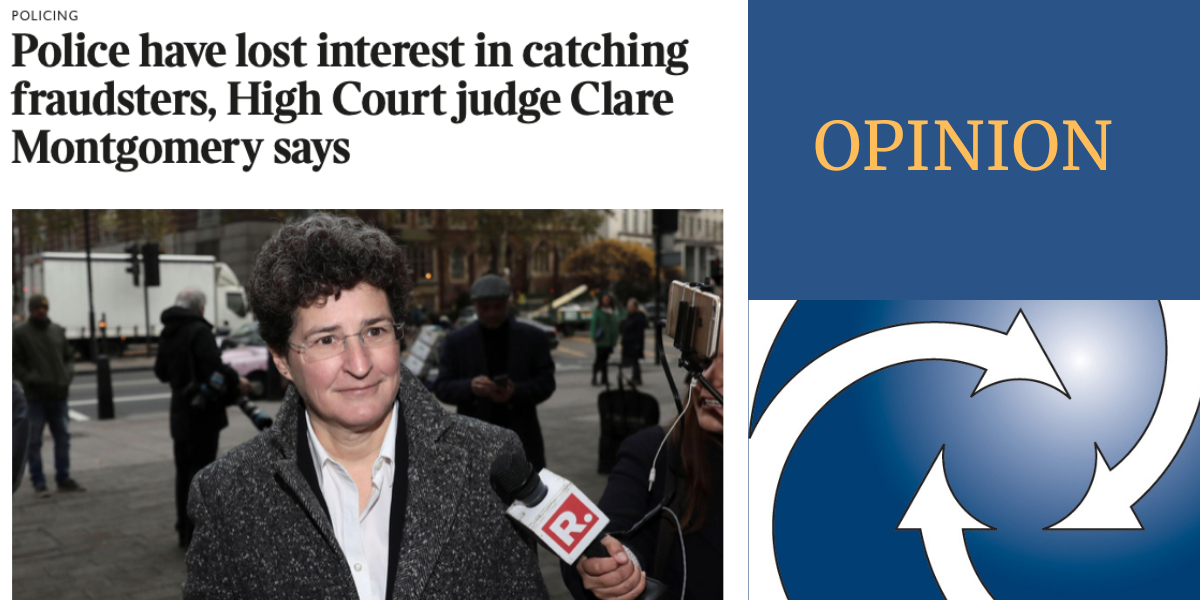British police have lost interest in catching scammers and fraudsters, the prominent barrister and High Court judge Clare Montgomery KC has said today.
Montgomery, who has been involved in some of the biggest fraud cases in Britain, said she did not believe that police had “any interest in prosecuting fraud anywhere”.
And I would concur. The UK government and senior police officers must accept that where fraud is concerned they are failing.
The UK government and senior police officers must accept that where fraud is concerned they are failing
Frontline police officers, both uniform and CID (detectives), are unable to meet the current demands placed upon them. To expect them to add what is often perceived to be a low-level crime is unrealistic. Violent crime must take precedent, leaving fraud way down their list of priorities.
However, if you are an elderly victim who has lost their life savings, then in terms of victim-impact, shouldn’t this elevate the crime experienced in terms of importance and priority? Also, corporate fraud may appear to be a victimless crime, but losses to fraud will often see companies having to cut-their-cloth as a consequence.
These cuts can lead to job losses that directly impact the ordinary person in the street.
Fraud is not a victimless crime, it affects everybody directly or indirectly
When this occurs, it places an additional (and potentially avoidable) burden on the state, which must then support those losing their jobs via the public purse (made up in part by public taxation). Fraud is not a victimless crime, it affects everybody directly or indirectly.
Yet despite the size of the problem, fraud is not considered a Home Office policing priority. Therefore Chief Constables are not subject to meaningful performance measurement where fraud is concerned. This enables them to effectively turn a blind eye to the crime.
If we add to this the austerity cuts that have affected policing since 2010 (and are only now beginning to be reversed), which saw police fraud squads disbanded and seemingly to never return in any meaningful form, the problem is exacerbated further.
A lot of frauds we deal with involve multiple jurisdictions
By its nature, fraud is often a complicated crime to investigate. A lot of frauds we deal with involve multiple jurisdictions. Technology is impacting the situation as well, with fraud increasingly moving into the digital space and proliferating in complexity.
Jurisdictional boundaries, which often bring their own barriers, take so long to navigate that the police know before they embark on a cross-border investigation that the trail will often already be cold.
I therefore totally concur with Clare Montgomery’s observations. It is difficult to see how victims of financial frauds will be able to seek justice going forward without the assistance of private third parties.
I expect the Courts in England and Wales will continue to look at private prosecutions
To this end, I expect the Courts in England and Wales will continue to look at private prosecutions and white collar crime generally in the wider context of supporting victims of fraud and supporting a criminal justice system in danger of collapse.
Shaun Reardon-John is a consultant solicitor-advocate with Martin Kenney & Co (MKS). Read his bio here.


